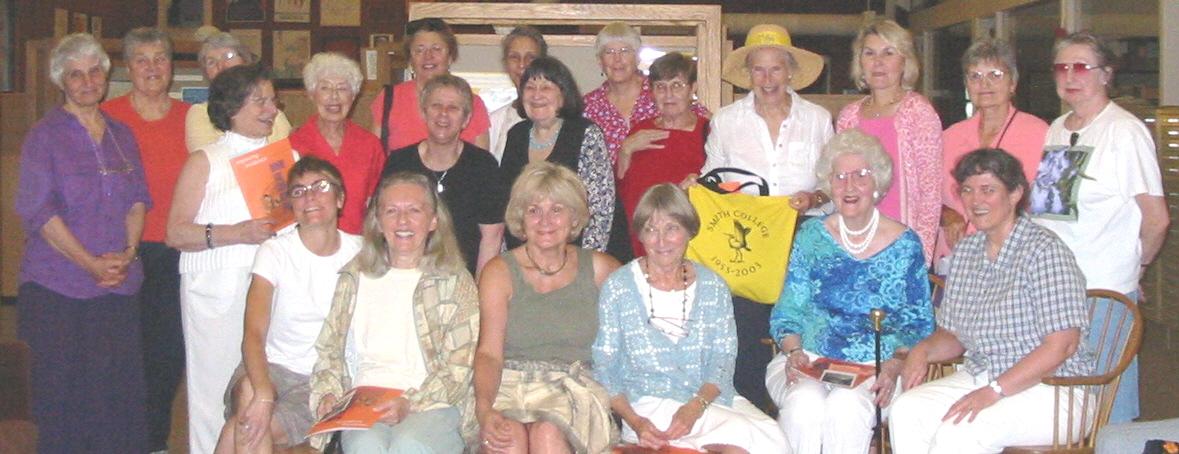|
In 2007 the Theological Opportunities Program celebrated the archiving of thirty-four years of TOP records and artifacts at the Sophia Smith Collection (SSC) at Smith College in Northampton. The SSC is one of the foremost archives of women's history in the world. It turns out that it is particularly interested in "grass-roots women's religious organizations" – and of course that is TOP! SSC has the papers of Margaret Sanger, Gloria Steinem, Roman Catholic feminist theologian Mary Daly, Jewish feminist theologian Judith Plaskow, and the records of more than a century of the National YWCA. The historian Mary Ritter Beard has said:
no history, without history, no memory, without memory, no development among women.
| |

| |
| Members of "caravan" delivering the first consignment of WE/TOP archives to Smith College. | |
|
So on July 19th we drove our TOP boxes and artifacts to Smith in a nine-car caravan with 23 TOP women to deliver TOP's first archival deposit to the Sophia Smith Collection. We deposited:
TOP had a rich 34 year history and we were fortunate to have kept over those years so many different verbal and visual and audio and video and print testaments to TOP's evolving life and issues, and this is appreciated by the Smith archivists. Since the initial deposit more of TOP's and WomenExplore's archives had been added. Archiving at Smith has given us a new sense of validation and a new sense of TOP's historical significance within women's history and in the religious/theological ferment of the most recent years of feminism. Meanwhile WomenExplore continues on as a vital and vibrant community of women examining the issues that women face in today's world. Anyone interested in scholarly research into WE/TOP and in delving into our deep and rich history should contact the Sophia Smith Collection directly.
| |
| Back to top of page | |
|
In 1988 Elizabeth Dodson Gray edited Sacred Dimensions of Women’s Experience. This book was based upon the 1985 Fall TOP series. It is by 31 women, writing autobiographically, and is about the religious dimensions of those portions of the total human experience which males never experience—and therefore have never named as sacred (for example, women bringing life in childbirth). Her own first book, Green Paradise Lost (1979), asked why did we ever think we could get away with treating nature so badly. It is now viewed as one of two classic eco-feminist texts. Her second book, Patriarchy as a Conceptual Trap (1982), condemns what since the Middle Ages Christian theology has called the Great Chain of Being—the cosmic hierarchy which she finds rooted in the patriarchal "ranking of diversity" which begins with men ranking men above women. Ranking diversity is the conceptual trap. In 1994 she wrote Sunday School Manifesto: In the Image of Her?, contrasting the woman-affirming accounts of Jesus in the gospels with subsequent centuries of woman-denigrating Christian theology and practice. She notes that Christian theology and churches have never repented of this history of denigrating women.
| |
| Back to top of page | |
|
On 3rd June 2010, at the Spring Garden Party honoring their service to TOP, Elizabeth and David Dodson Gray were presented with the Donella Meadows Award by the Club of Rome (USA). | |
| Back to top of page |